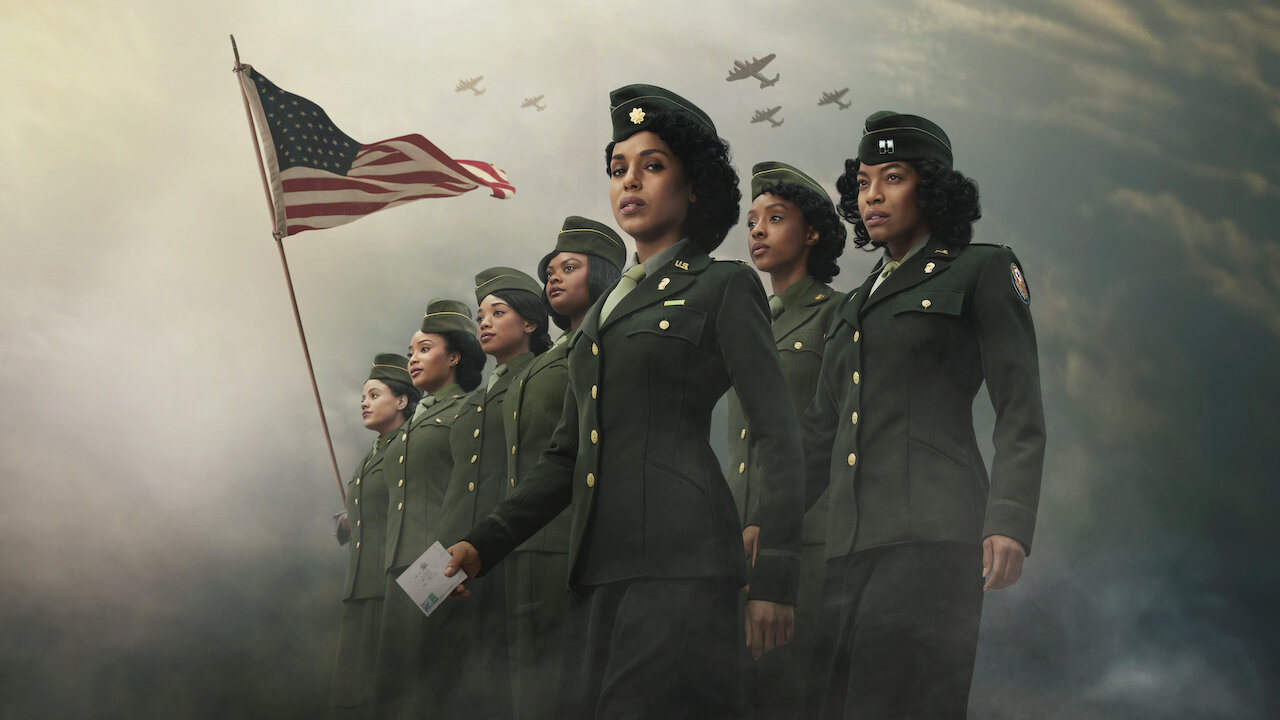
Netflix’s The Six Triple Eight tells the remarkable story of the only all-Black, all-female battalion in the U.S. Army during World War II. Known as the 6888th Central Postal Directory Battalion, these trailblazing women faced racism, sexism, and immense odds, yet triumphed in their mission to sort millions of backlogged letters and packages for soldiers on the frontlines. While the film’s subject is undeniably compelling, its execution by writer-director Tyler Perry has sparked mixed reactions.
The Legacy of the Six Triple Eight
The Six Triple Eight was a groundbreaking unit in U.S. military history. Composed of over 800 women, these soldiers were tasked with clearing a six-month backlog of mail in England during 1945. They worked under extreme pressure, sorting and delivering mail to soldiers to boost morale during a critical phase of the war.
Their motto, “No Mail, Low Morale,” perfectly captured their mission’s importance. Despite being assigned a near-impossible task designed to undermine them, the women of the 6888th completed their mission in record time, proving their resilience and dedication.
Tyler Perry’s Ambitious Take
Tyler Perry’s attempt to bring this inspiring story to life is a bold move, but his execution has drawn criticism for missing the mark in capturing the historical gravitas. Here’s a closer look at the film’s strengths and shortcomings:
Strengths
- Focus on Representation:
The Six Triple Eight sheds light on a relatively unknown chapter of WWII, highlighting the contributions of Black women often omitted from mainstream narratives. - Emotional Core:
The film’s heart lies in showcasing the personal struggles and camaraderie of the women as they navigate systemic racism and wartime hardships. - Authenticity in Costumes and Dialogue:
The military uniforms and period-appropriate dialogue add to the film’s historical texture, even if other aspects falter.
Weaknesses
- Caricatured Characters:
The portrayal of certain characters, both allies and antagonists, leans toward exaggerated stereotypes, undermining the authenticity of the narrative. - Set Design Issues:
Some scenes, such as the training camp, feel overly staged, lacking the lived-in quality needed to immerse the audience in the era. - Pacing Problems:
The film’s tone shifts from inspiring to wearying, with moments of excessive melodrama that detract from the story’s emotional impact.
Highlighting the Women Behind the Mission
While the film may falter in execution, the real-life legacy of the 6888th Battalion remains awe-inspiring. These women shattered barriers, proving their competence and bravery in the face of systemic discrimination.
The battalion was led by Major Charity Adams, the first Black officer in the Women’s Army Corps. Her leadership and resilience inspired her team to achieve the impossible and left an indelible mark on American military history.
The Importance of Revisiting Forgotten Histories
The story of the Six Triple Eight isn’t just about delivering mail—it’s about delivering justice to the unsung heroes who paved the way for future generations. Tyler Perry’s attempt to bring their story to a broader audience deserves recognition, even if the execution leaves room for improvement.
The women of the 6888th remind us of the power of perseverance and the importance of representation in history. Their achievements resonate today, inspiring new generations to challenge prejudice and fight for inclusion.
Table: Key Highlights of “The Six Triple Eight”
| Aspect | Details |
|---|---|
| Battalion Name | 6888th Central Postal Directory Battalion |
| Director | Tyler Perry |
| Setting | Europe during World War II |
| Historical Context | First all-Black, all-female battalion in U.S. Army history |
| Mission | Clear six months’ worth of undelivered mail to soldiers on the frontlines |
| Themes | Racism, sexism, resilience, representation |
| Strengths | Unique historical focus, emotional storytelling, representation |
| Weaknesses | Overly caricatured characters, set design flaws, inconsistent pacing |
| Notable Figures | Major Charity Adams, leader of the battalion |
Final Thoughts
The Six Triple Eight is a commendable effort to spotlight the extraordinary contributions of Black women during WWII. While Tyler Perry’s execution may not fully capture the depth of their story, the film succeeds in sparking interest in a chapter of history that deserves wider recognition.
As audiences, we are reminded of the importance of telling diverse stories that honor the sacrifices and triumphs of those who shaped history. Despite its flaws, The Six Triple Eight delivers a message of courage, perseverance, and the enduring fight for equality.


